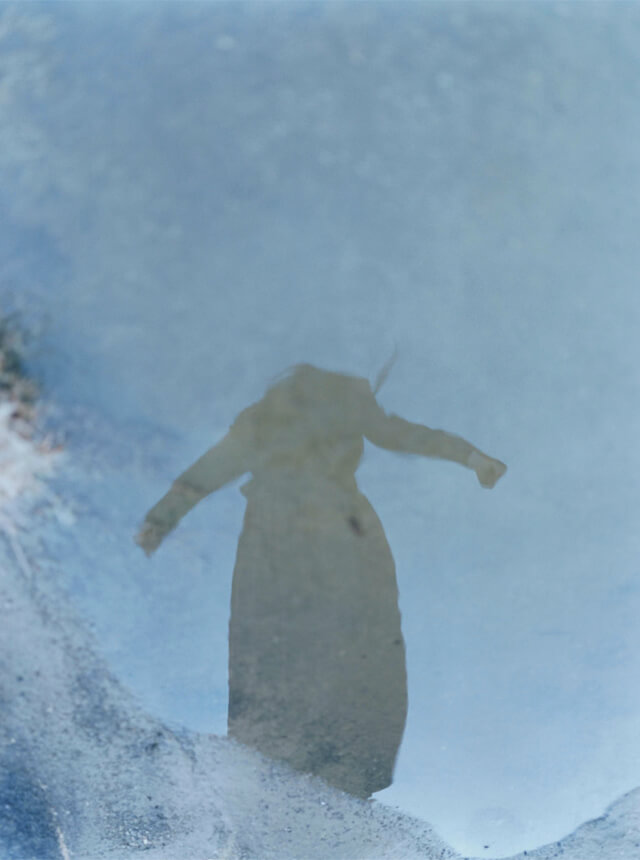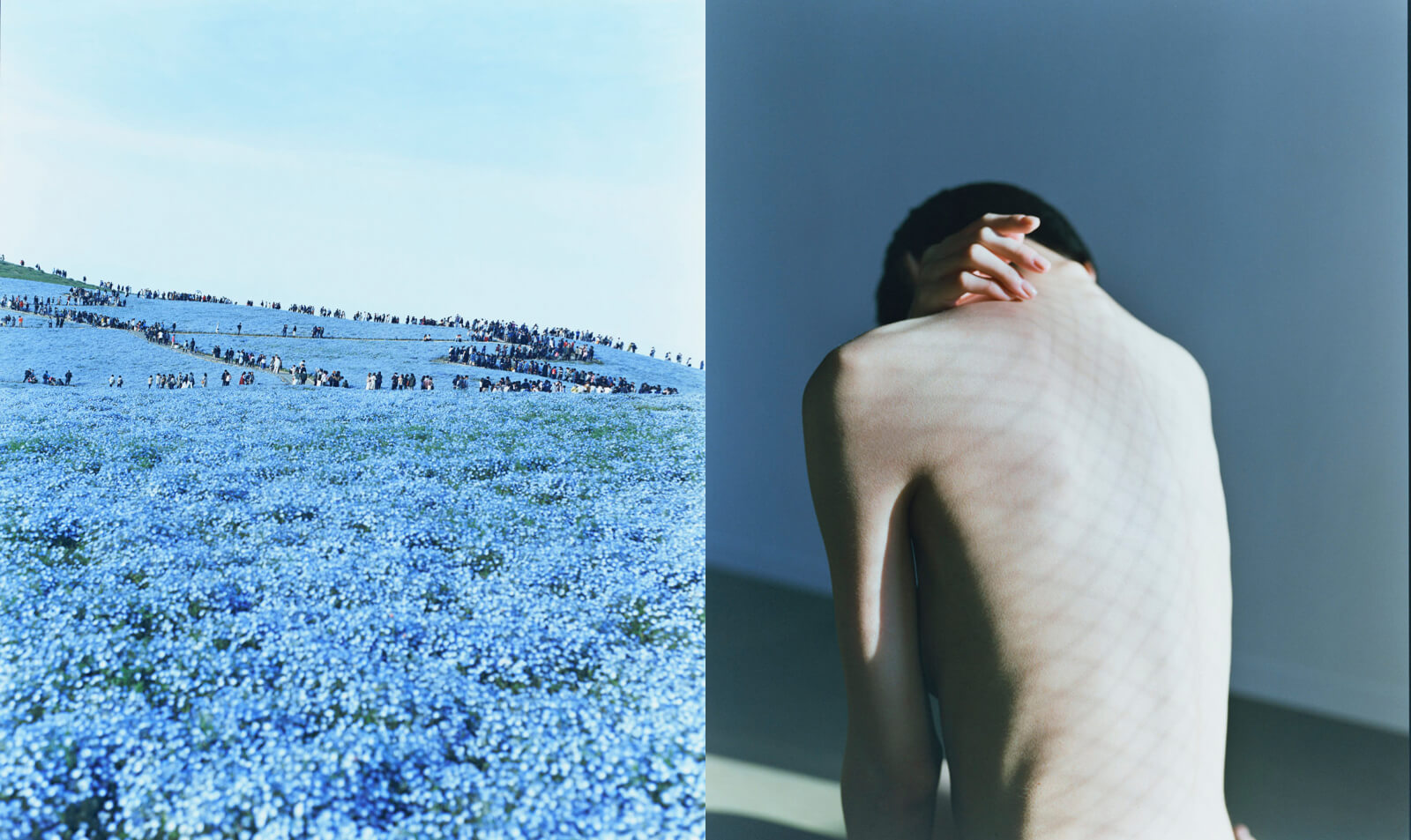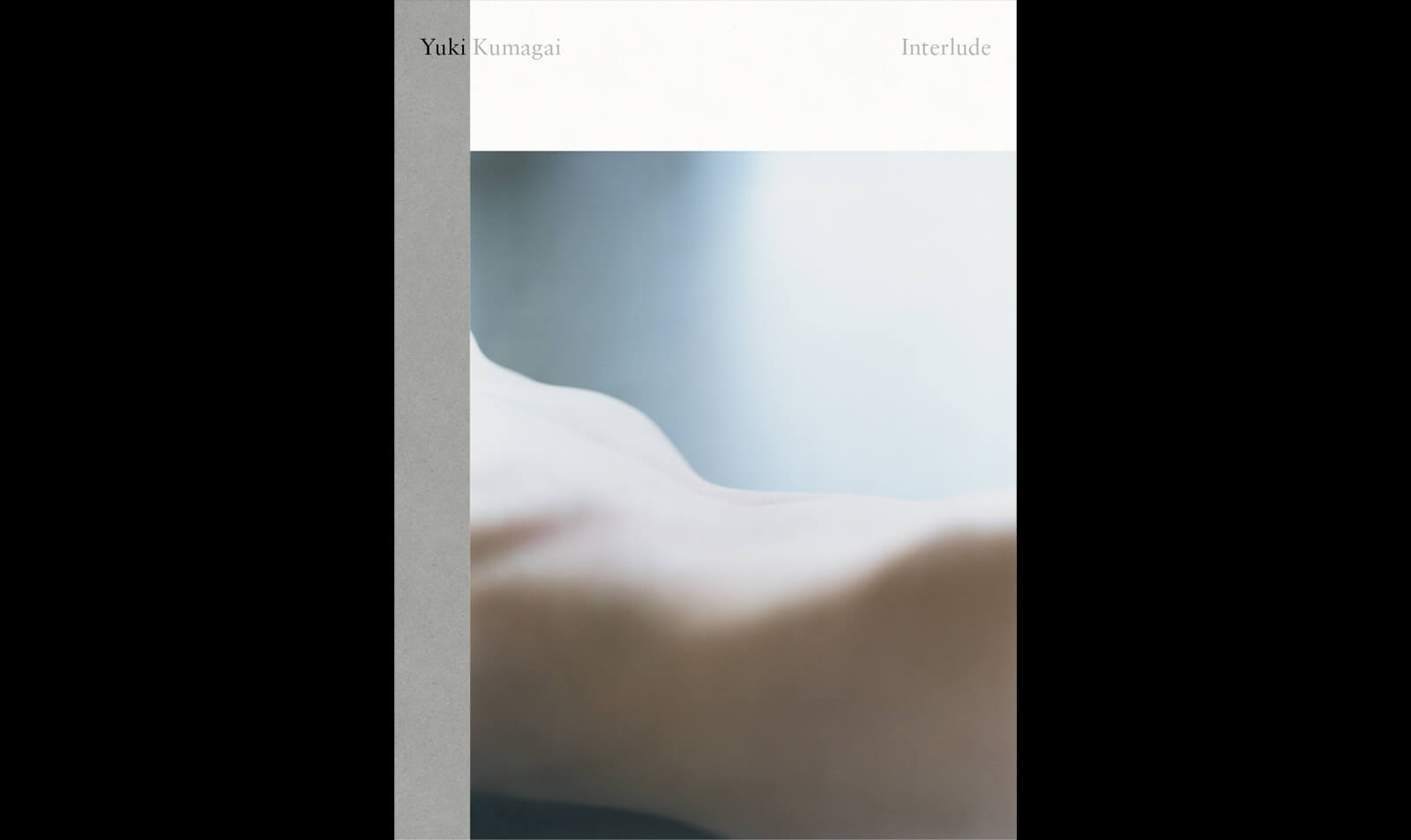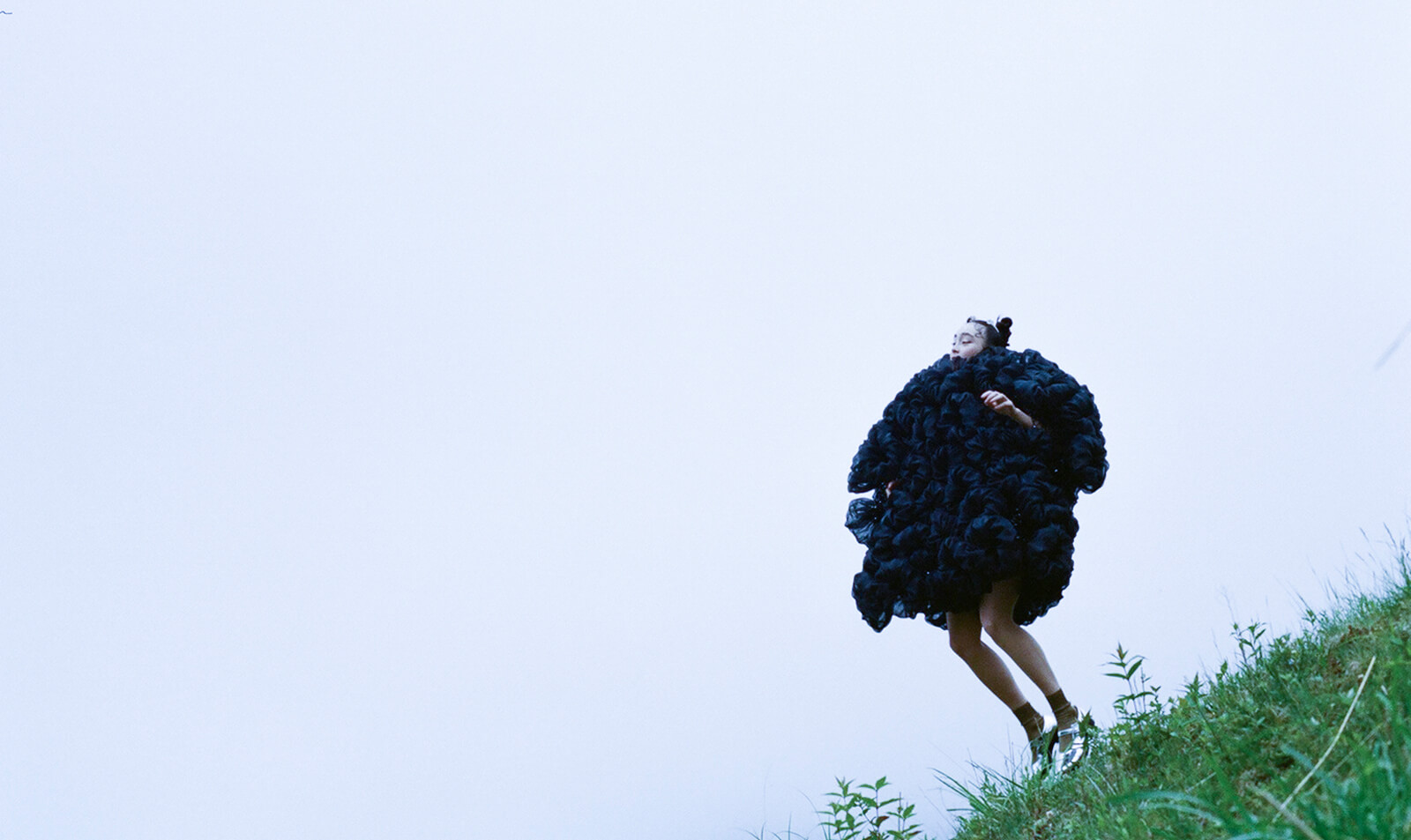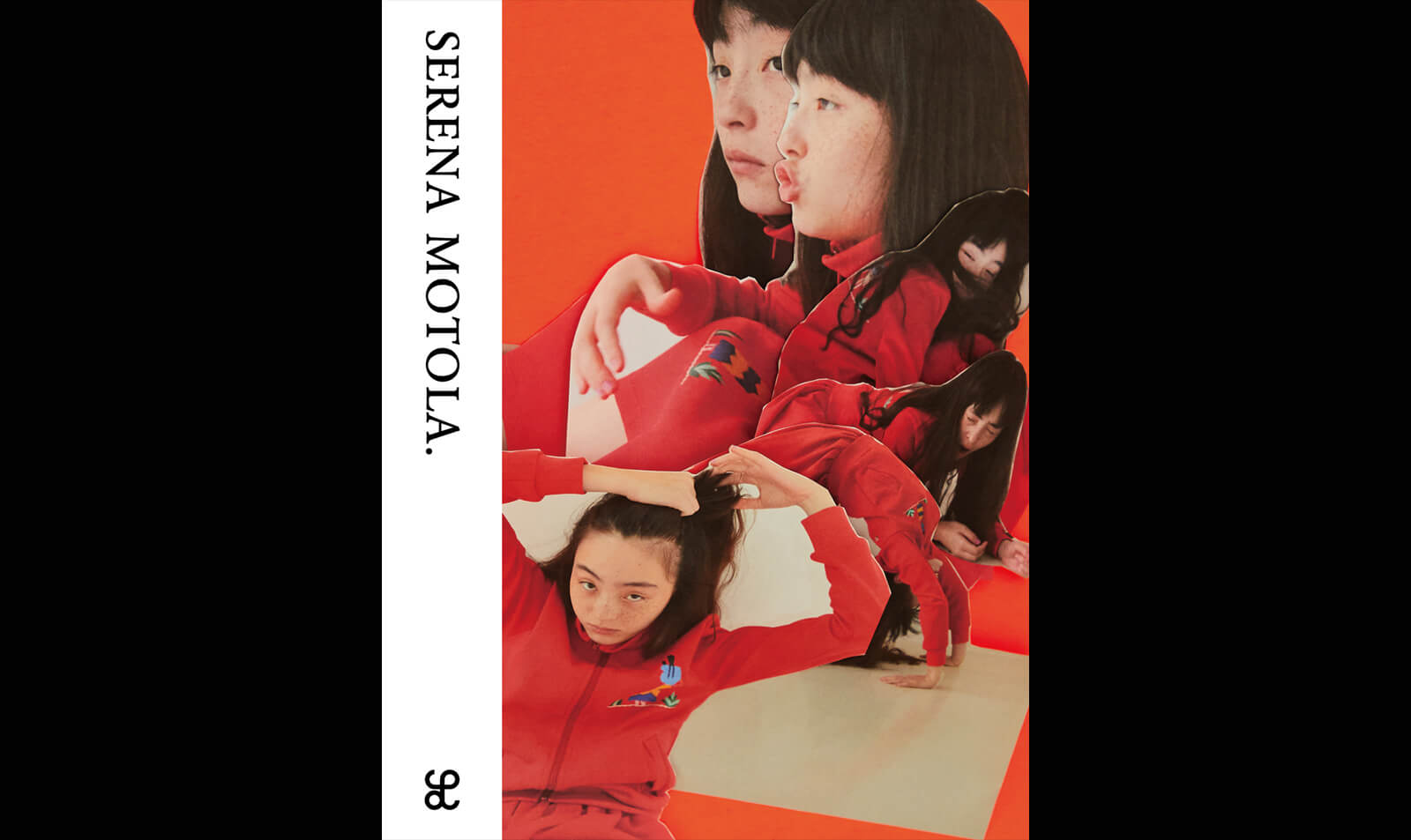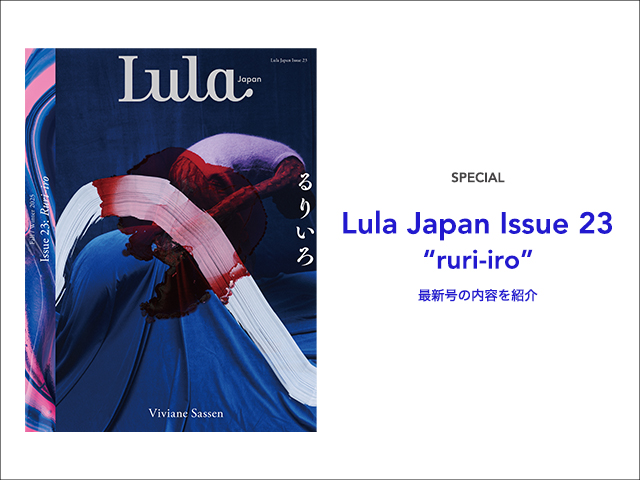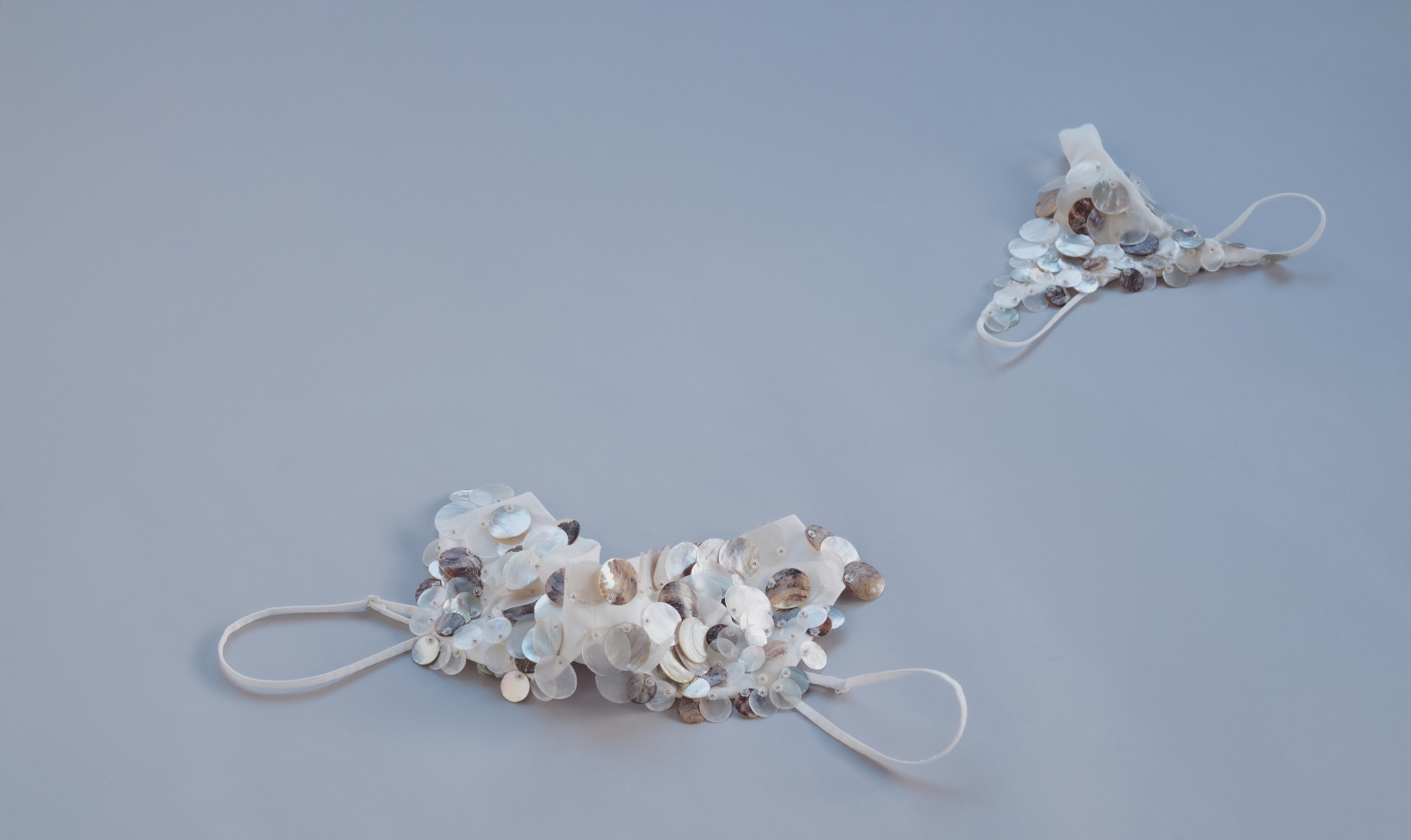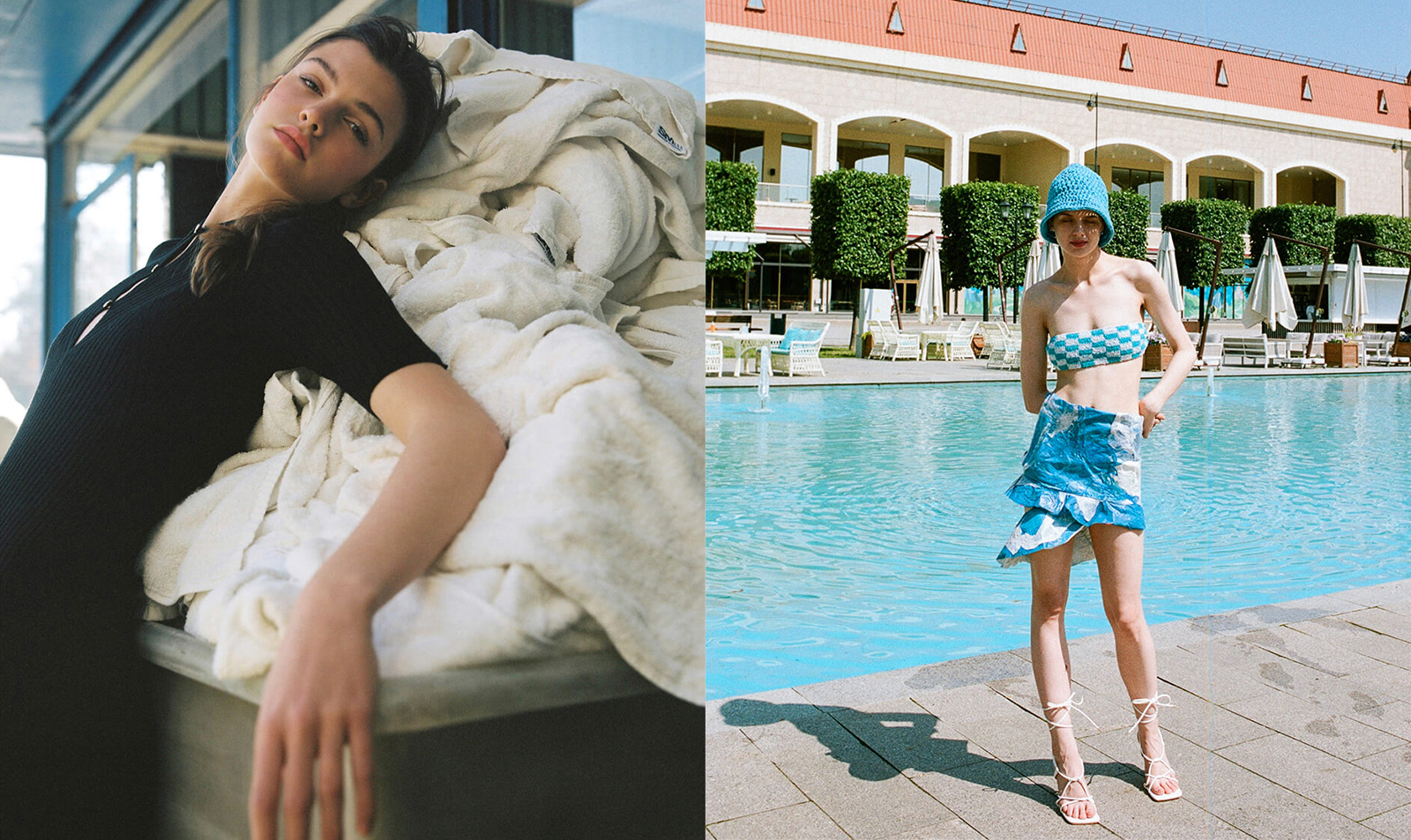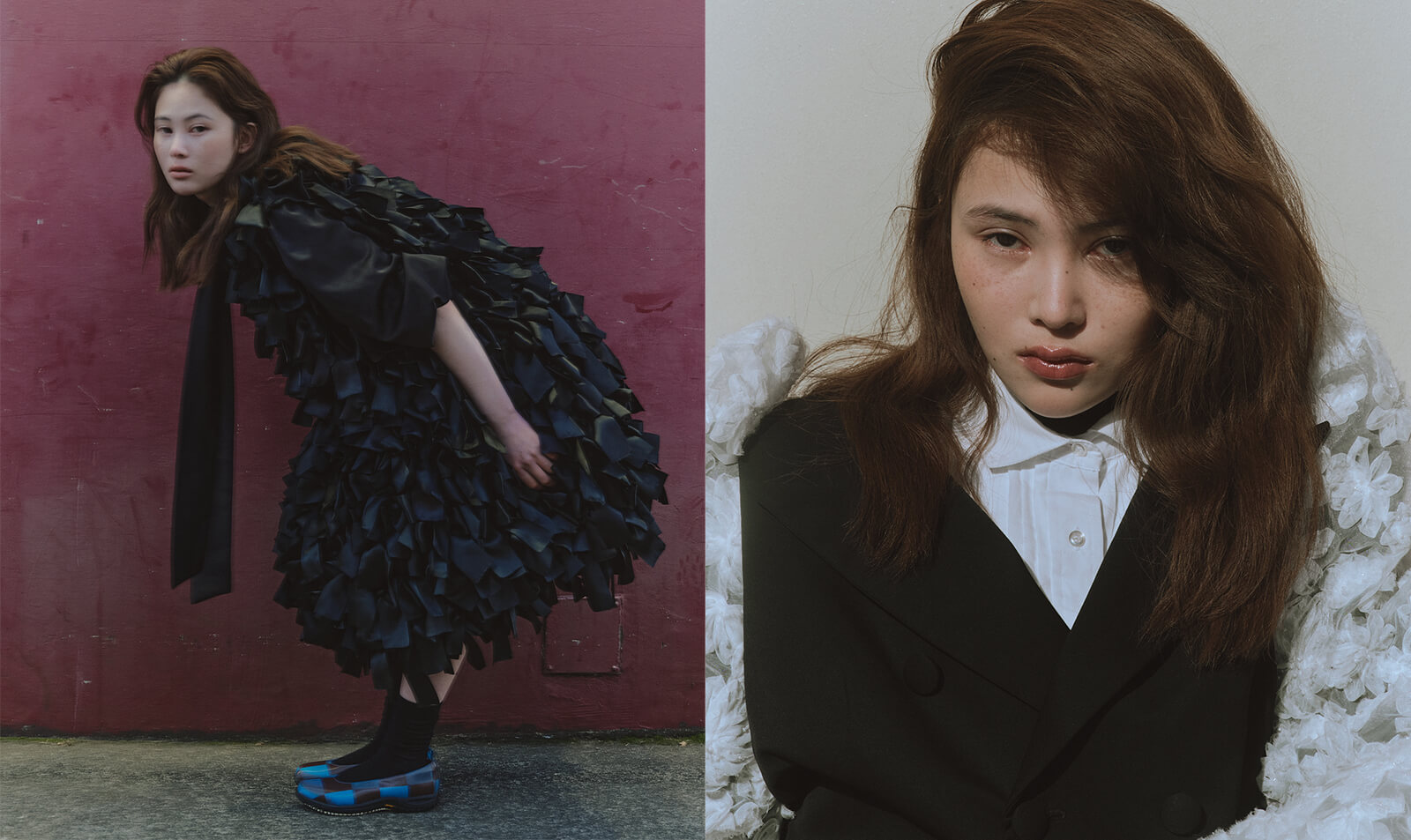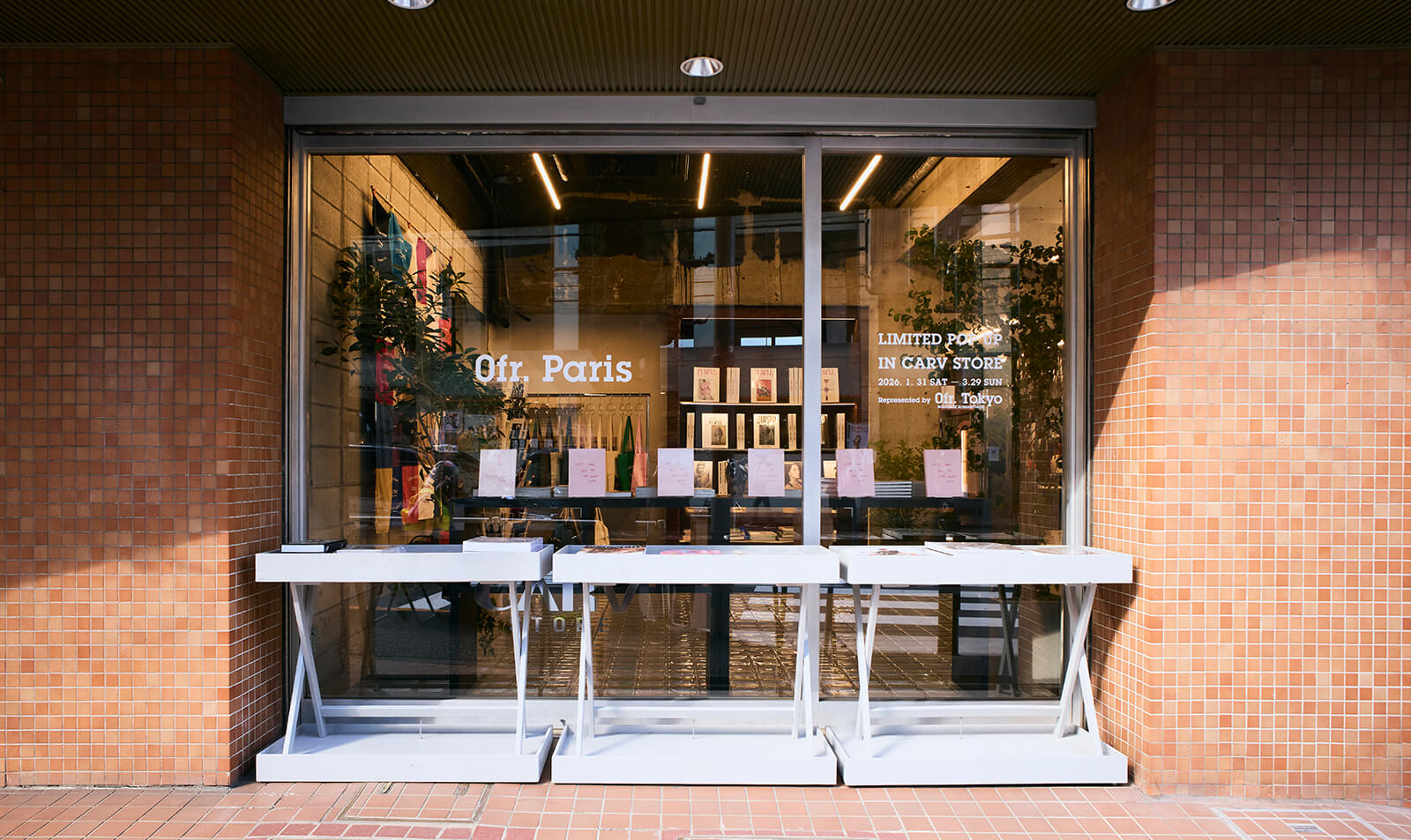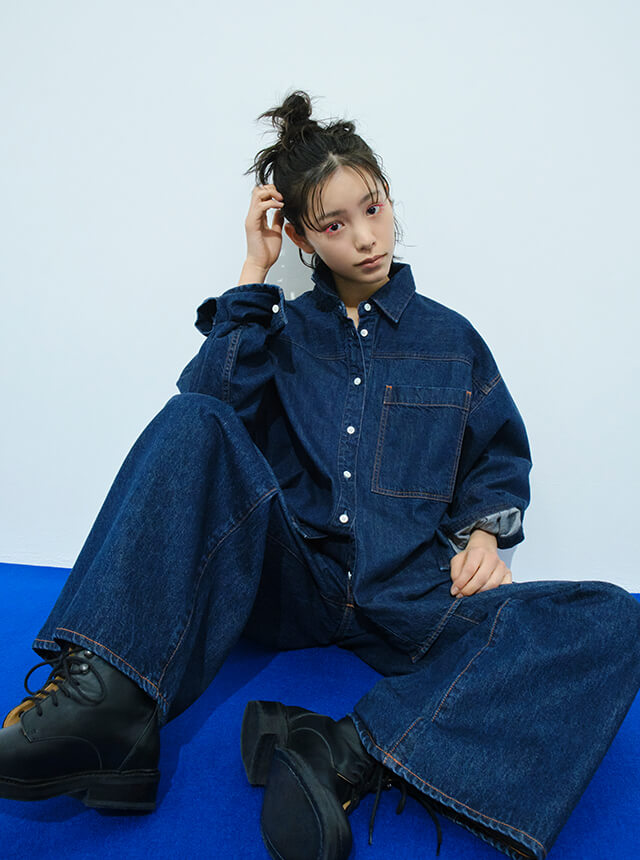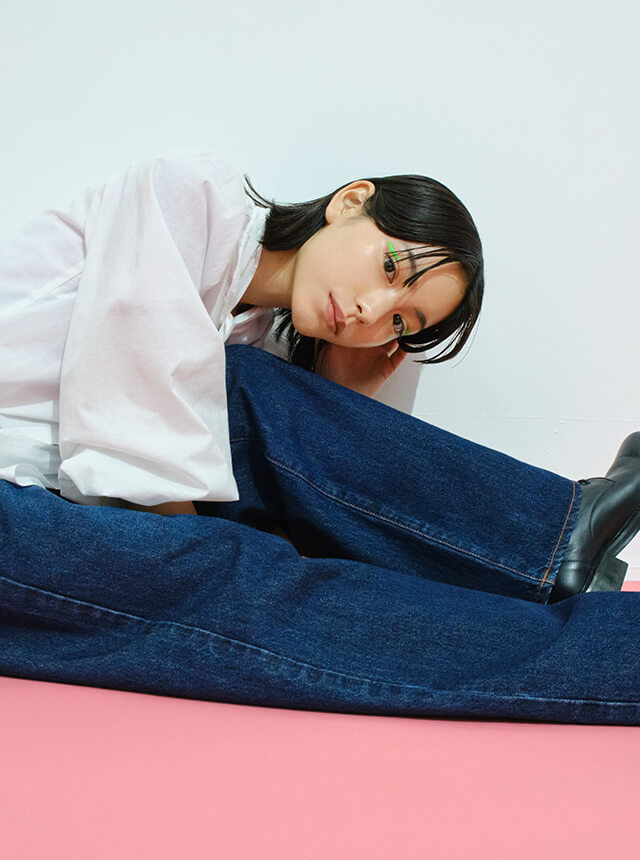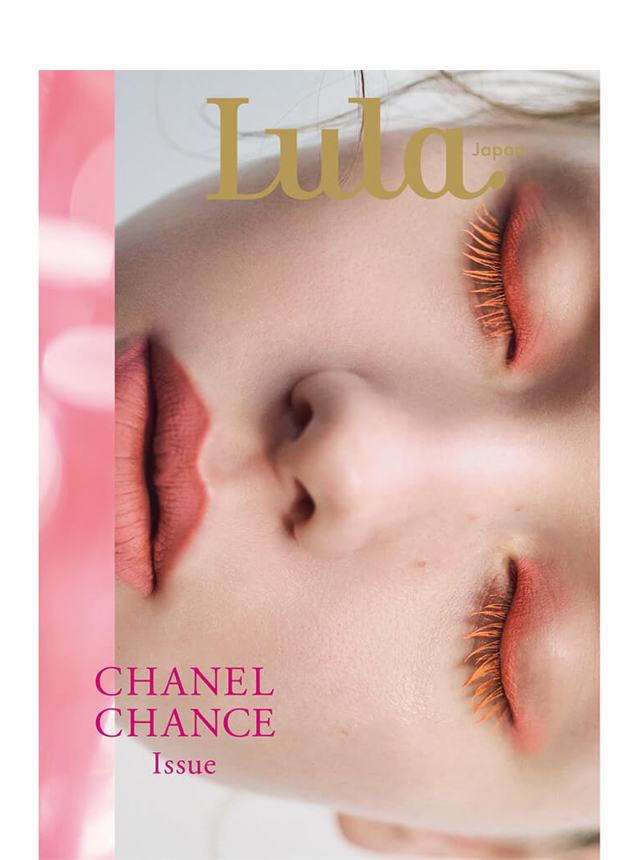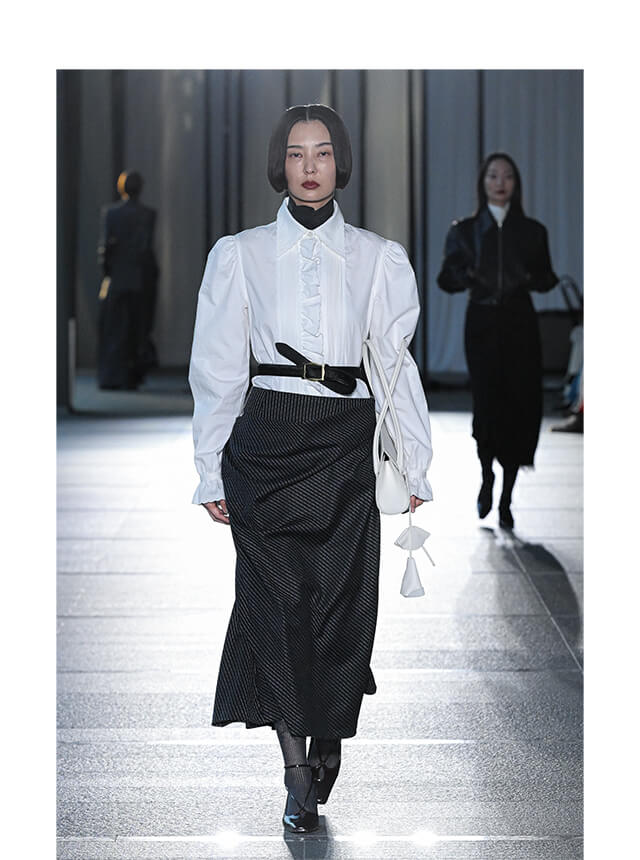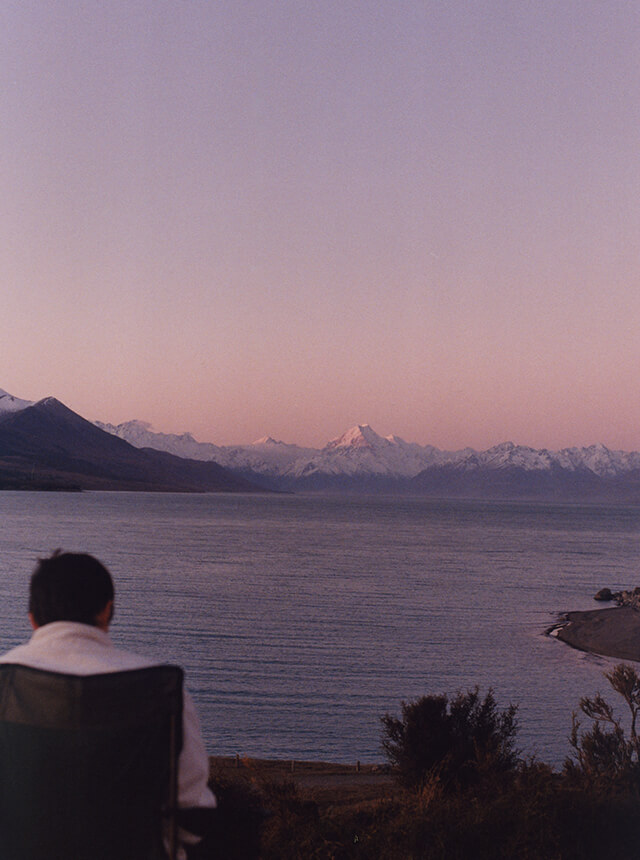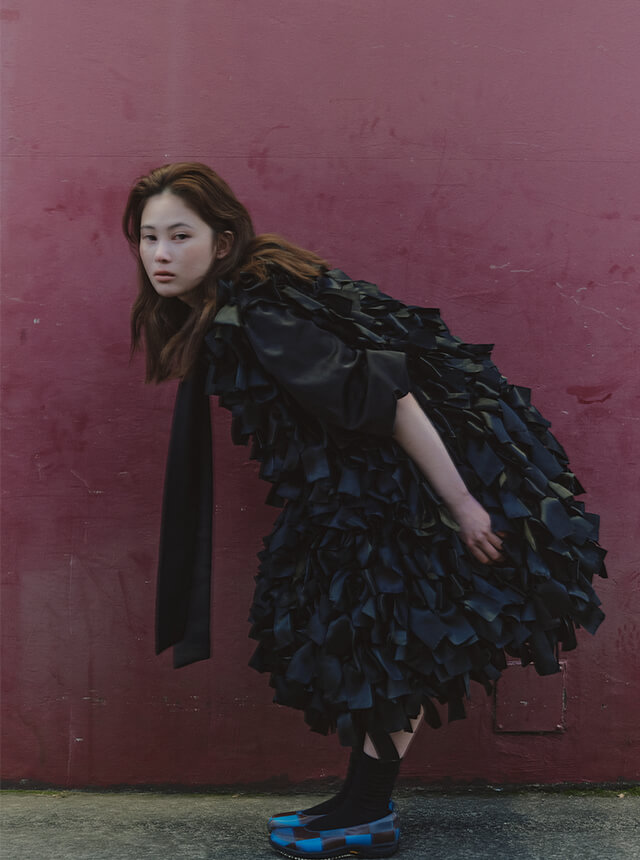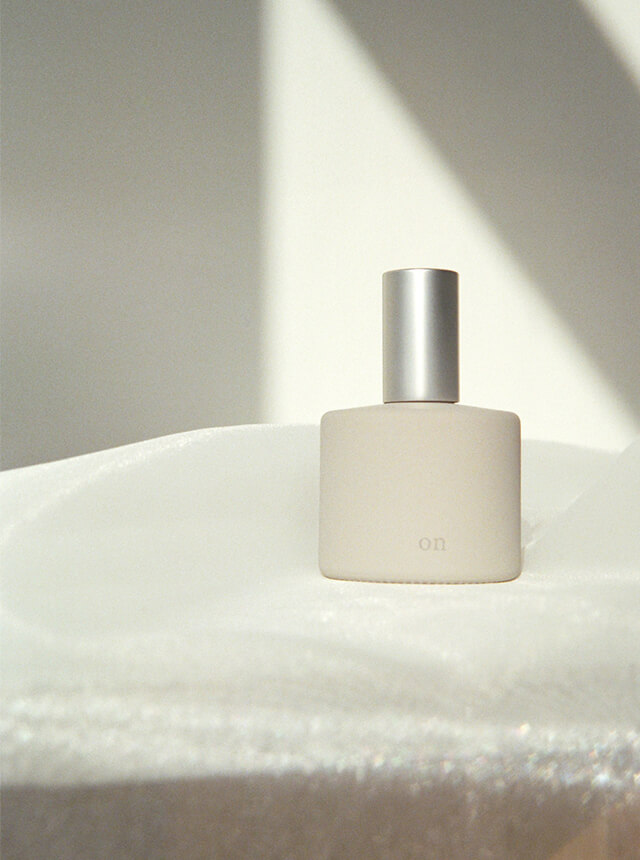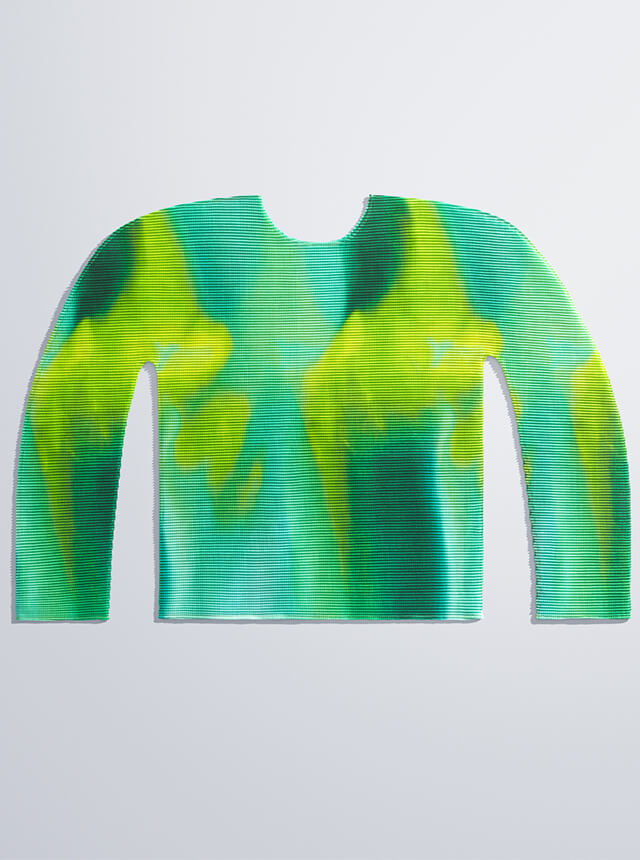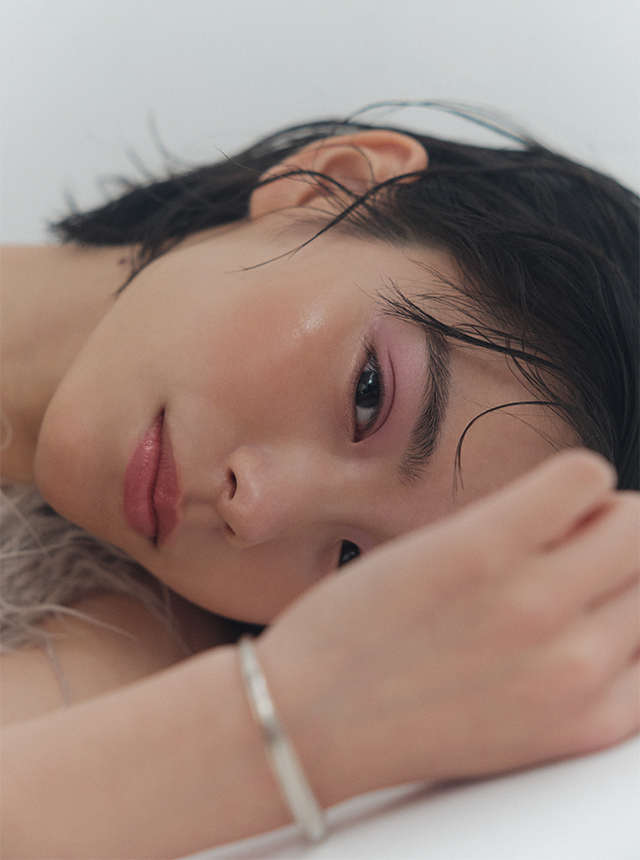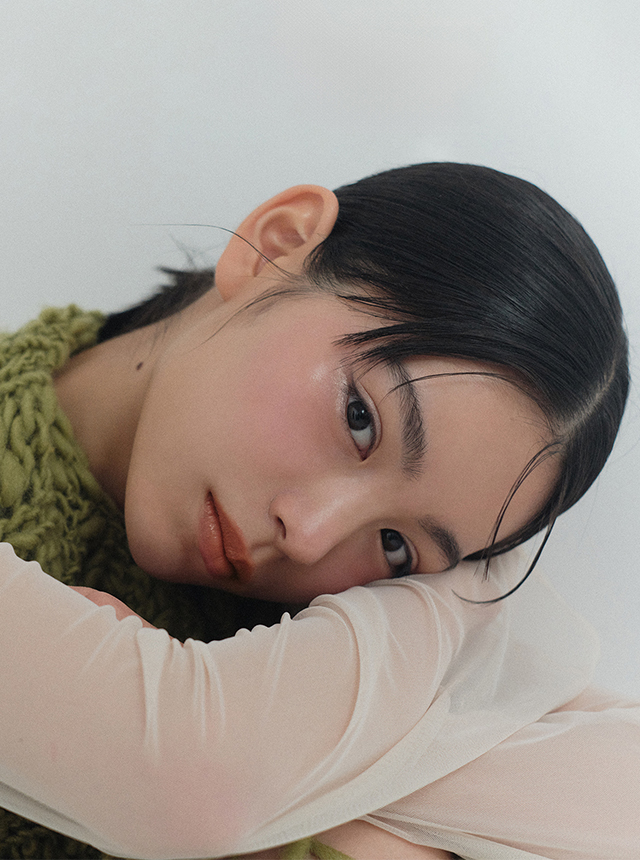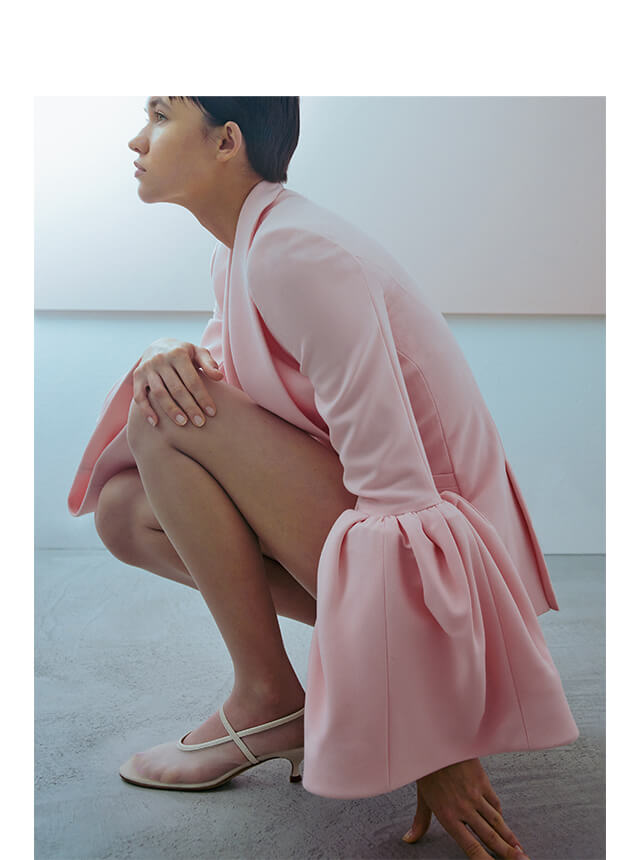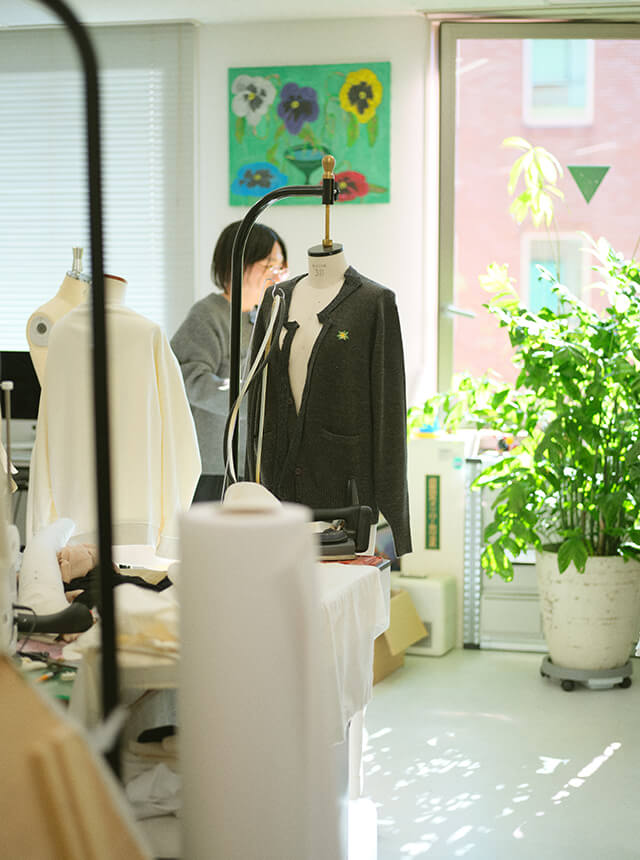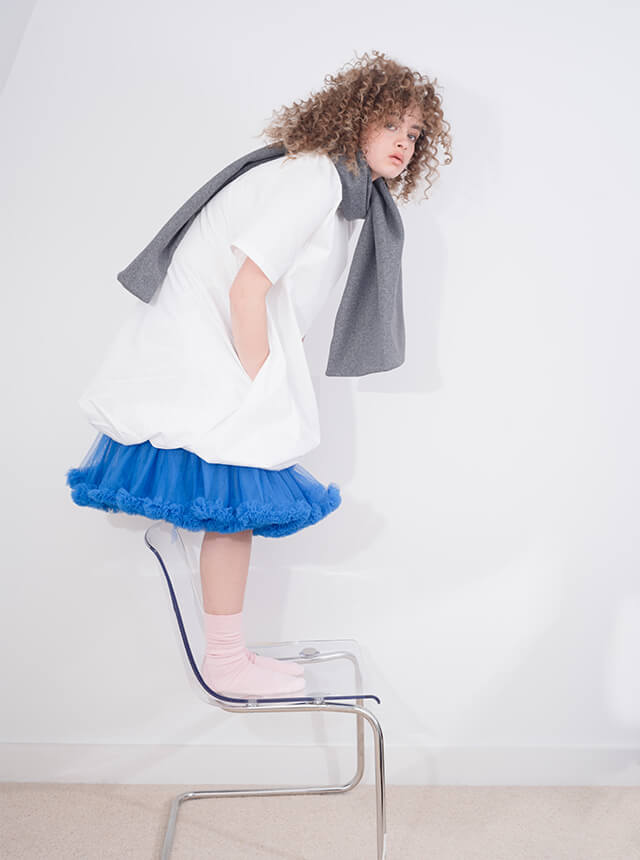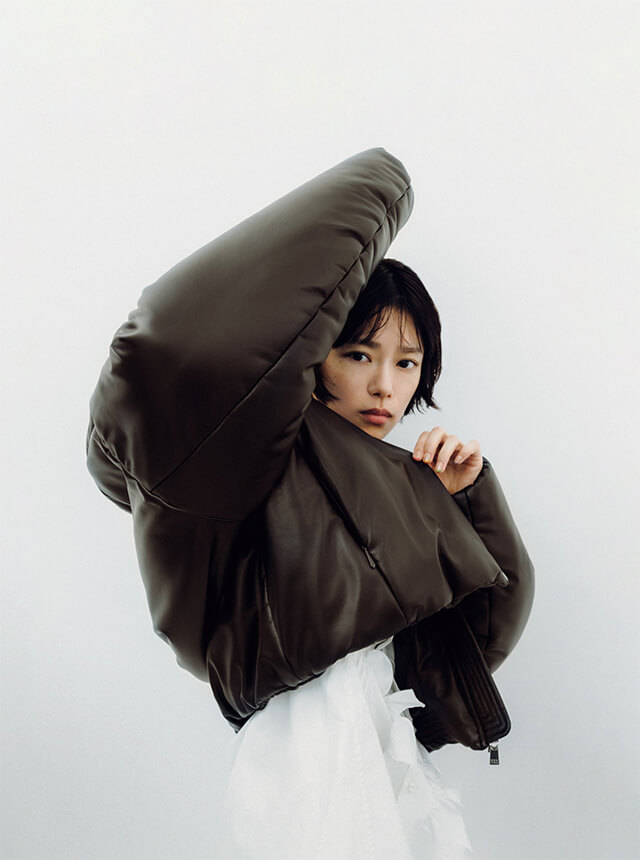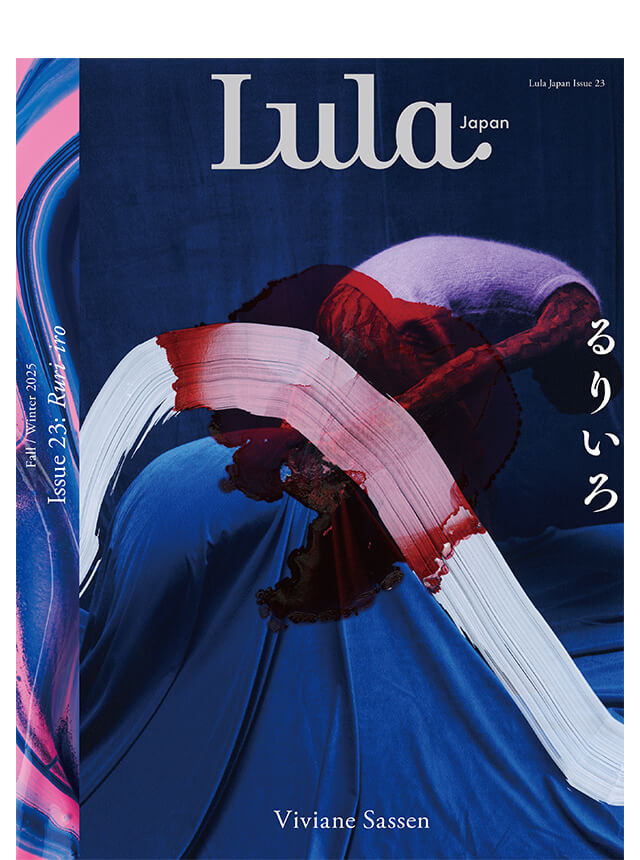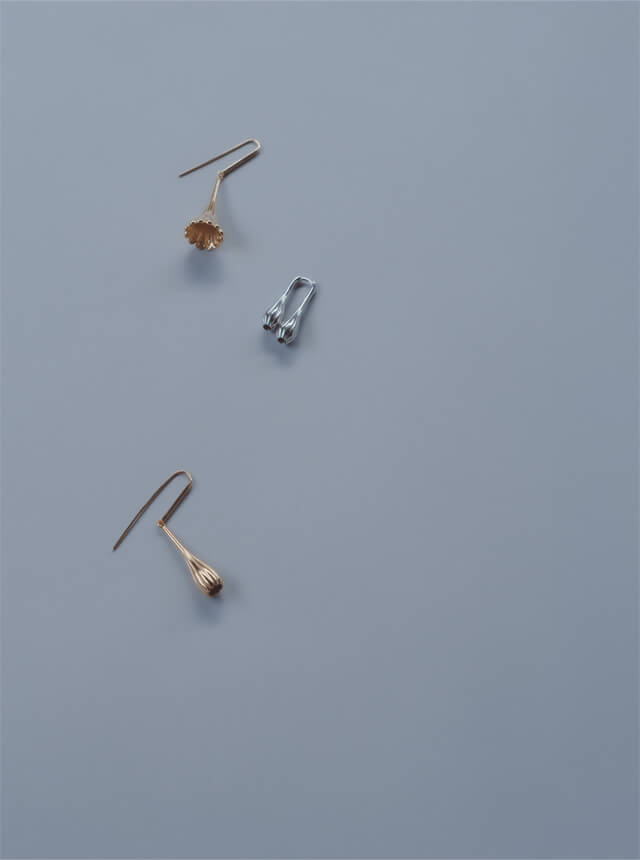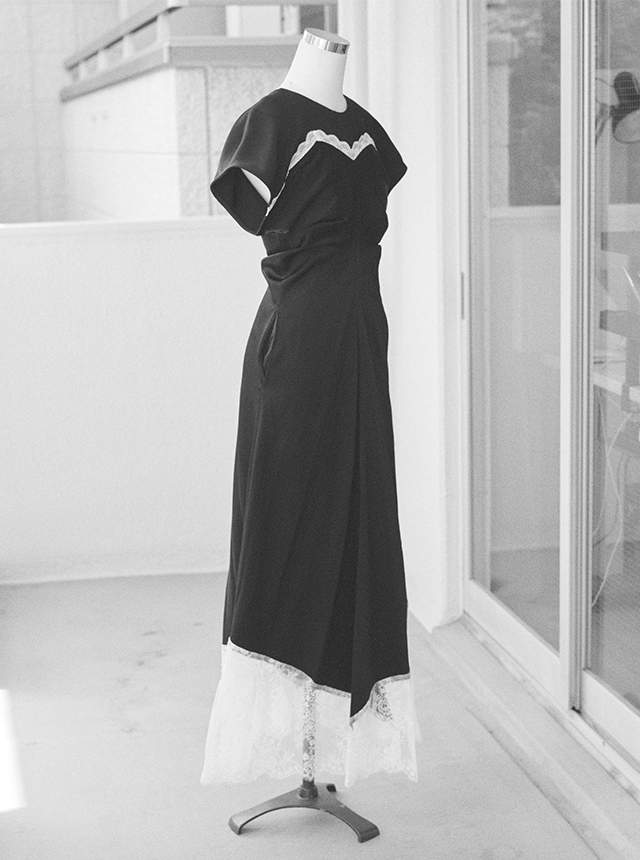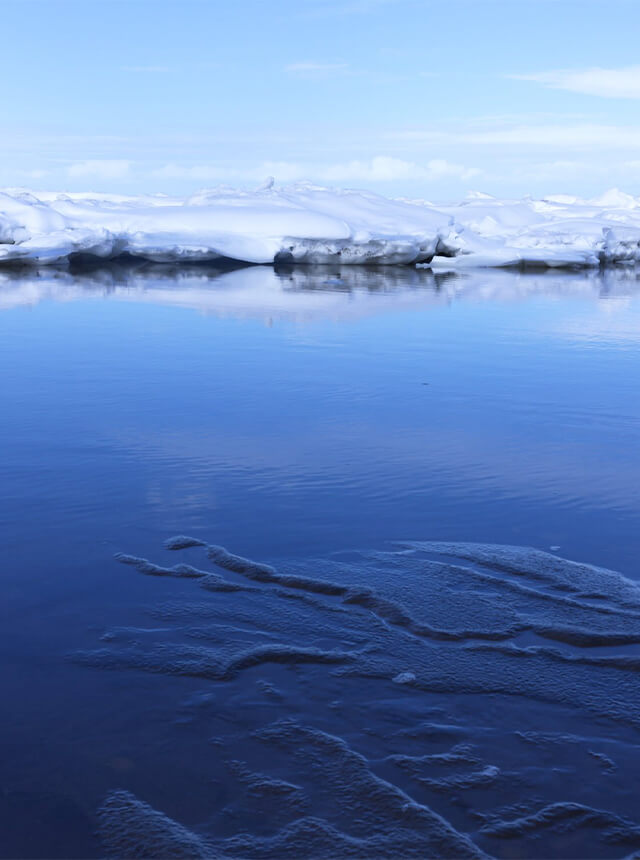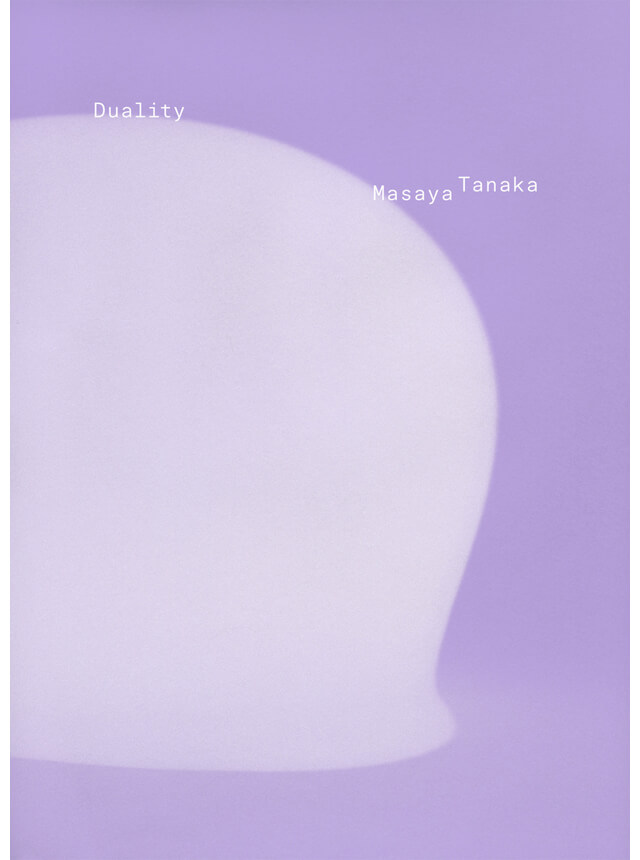出版プロジェクト「Lula BOOKS」より、写真家 熊谷勇樹の作品集「Interlude」が発売。
これを記念した個展が、書店兼ギャラリー BOOK AND SONSにて6月5日(日)まで開催されている。
今回、Lula Japanでは熊谷にスペシャルなインタビューを実施。
カメラを手にしてから10年を経て感じてきたもの、
今後の展望について語ってもらった。
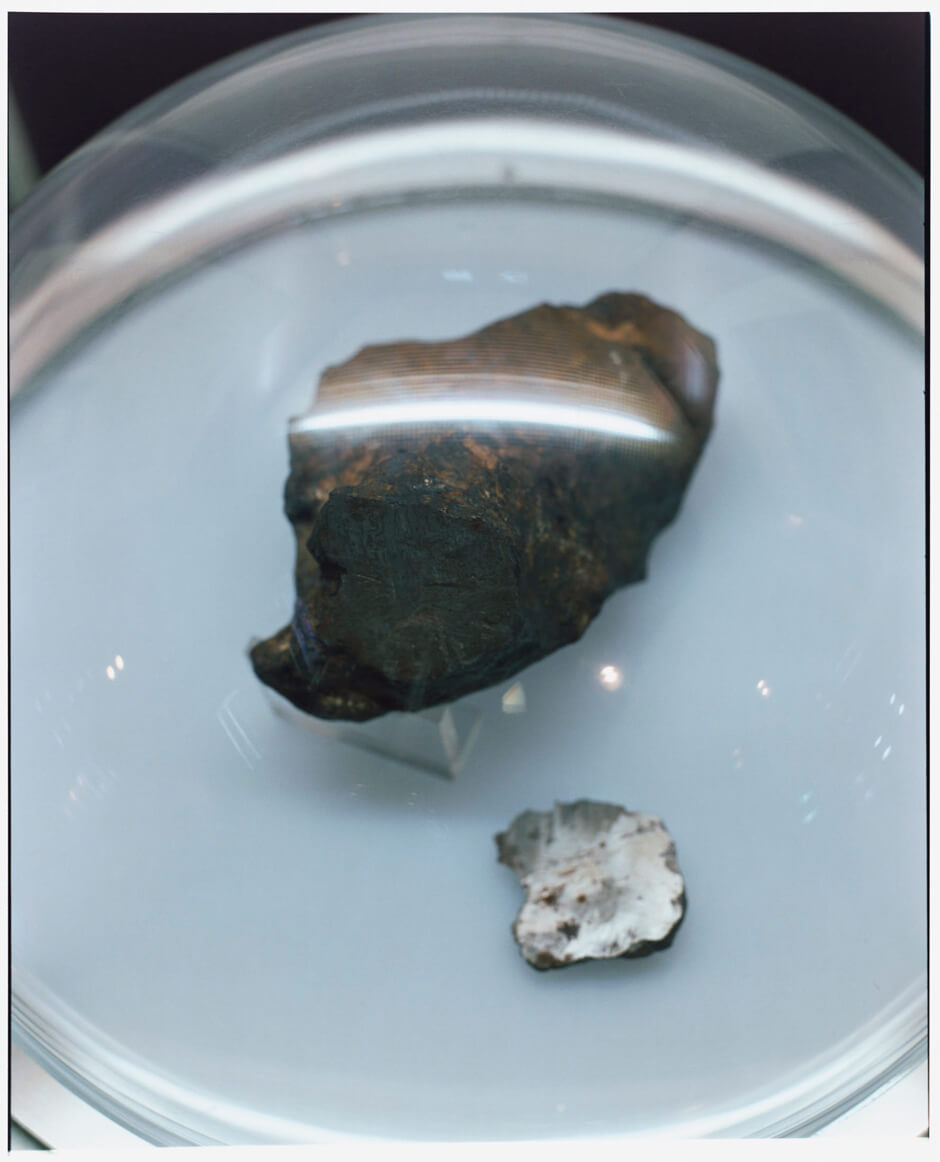
−写真を始めようと思ったきっかけは。
元々写真に興味がありました。
カメラを触る環境ではなかったのですが、やってみたいと思って始めた。
佐内正史さんがすごく好きでした。
他にも音楽や映画にも魅力を感じていたけど、自分がどう関わって良いのか分からなくて。
とにかく表現することに興味があって手にしたのがカメラでした。
−写真家の道を歩むことに不安や迷いなどはありましたか。
10代20代は生きるのに必死だった。
自分は何者でもないし、不安定で、もっと感覚も尖っていたから。
30代は仕事的な忙しさもあるけれど、今の方が色んなことを素直に受け入れられる気がします。
何者ではないというのはやっぱり大変。
今だと「フォトグラファー」って分かりやすいけど、スタジオマンの時はまだフォトグラファーになれるのかも、それで食べていけるのかも想像できなかったので。
モラトリアムといえばそうだけど、根を張っていないことの辛さは今思うとすごく大変だった。
多感でしたね。
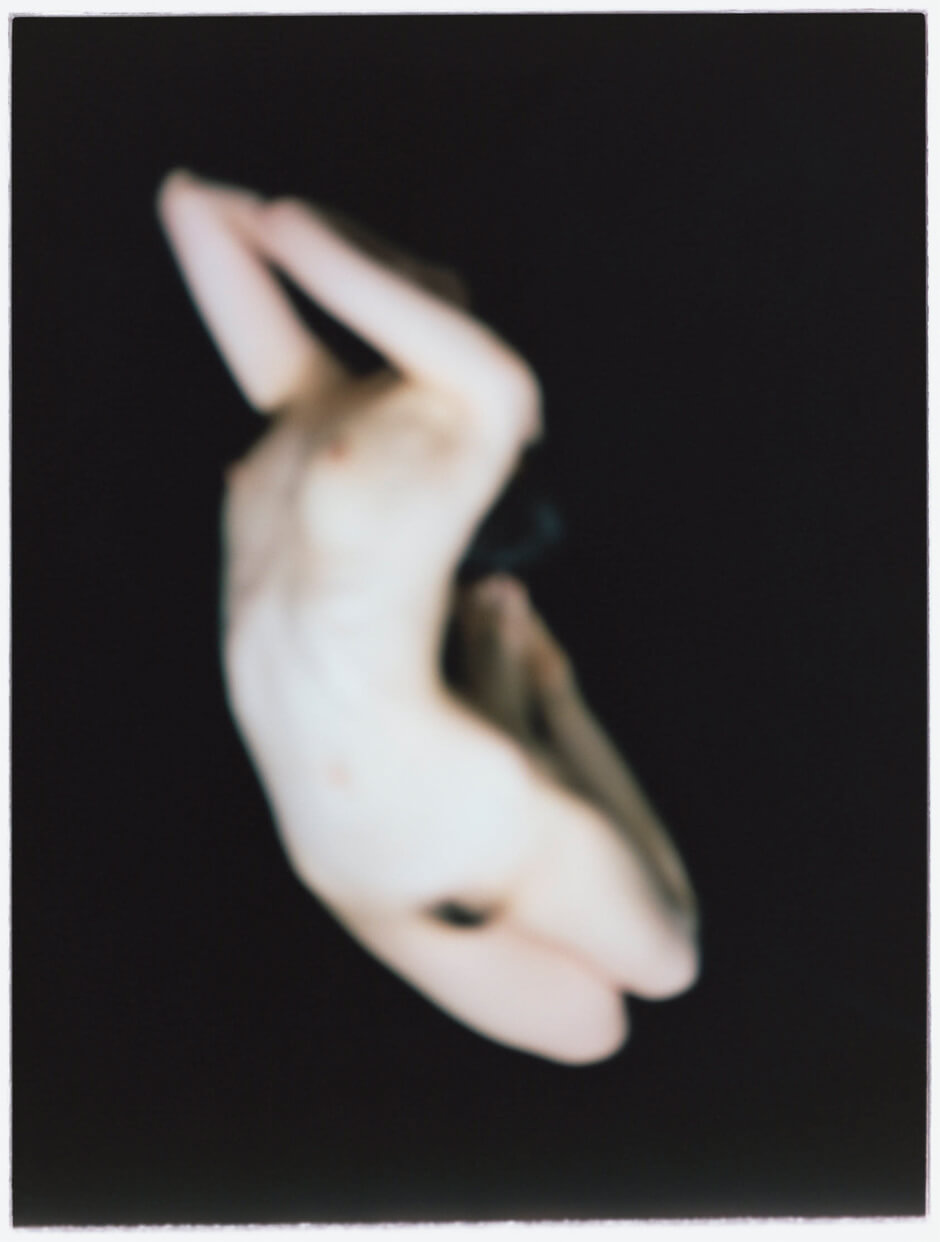
師である横浪修さんにはとても強い影響を受けました。
アシスタントとしての2〜3年が本当に貴重な経験だった。
フォトグラファーとして、社会人として生活するための人となりの土壌を作ってもらいました。
過去をやり直したいという気持ちにならないのは、横浪さんのおかげです。
−独立されてから約7年が経った今、何か心境の変化や、写真を撮ることに対して変わったことはありますか。
反対に、写真家としてキャリアを重ねられる中でも変わらないものはありますか。
技術が上がりすごく綺麗に撮れてしまうことは、良い時と悪い時があると思います。
考えて撮るようになってしまうから、初期衝動で撮っていた方が良かったなと思うこともある。
惰性で色々なことができてしまうようになるので、そこは年々気をつけていきたいです。
逆に作品をずっと撮り下ろしていくことで、見えてくるものもあると思います。
写真に対してだけはずっと誠実でいたい。
写真への向き合い方は、横浪さんからたくさん学びました。
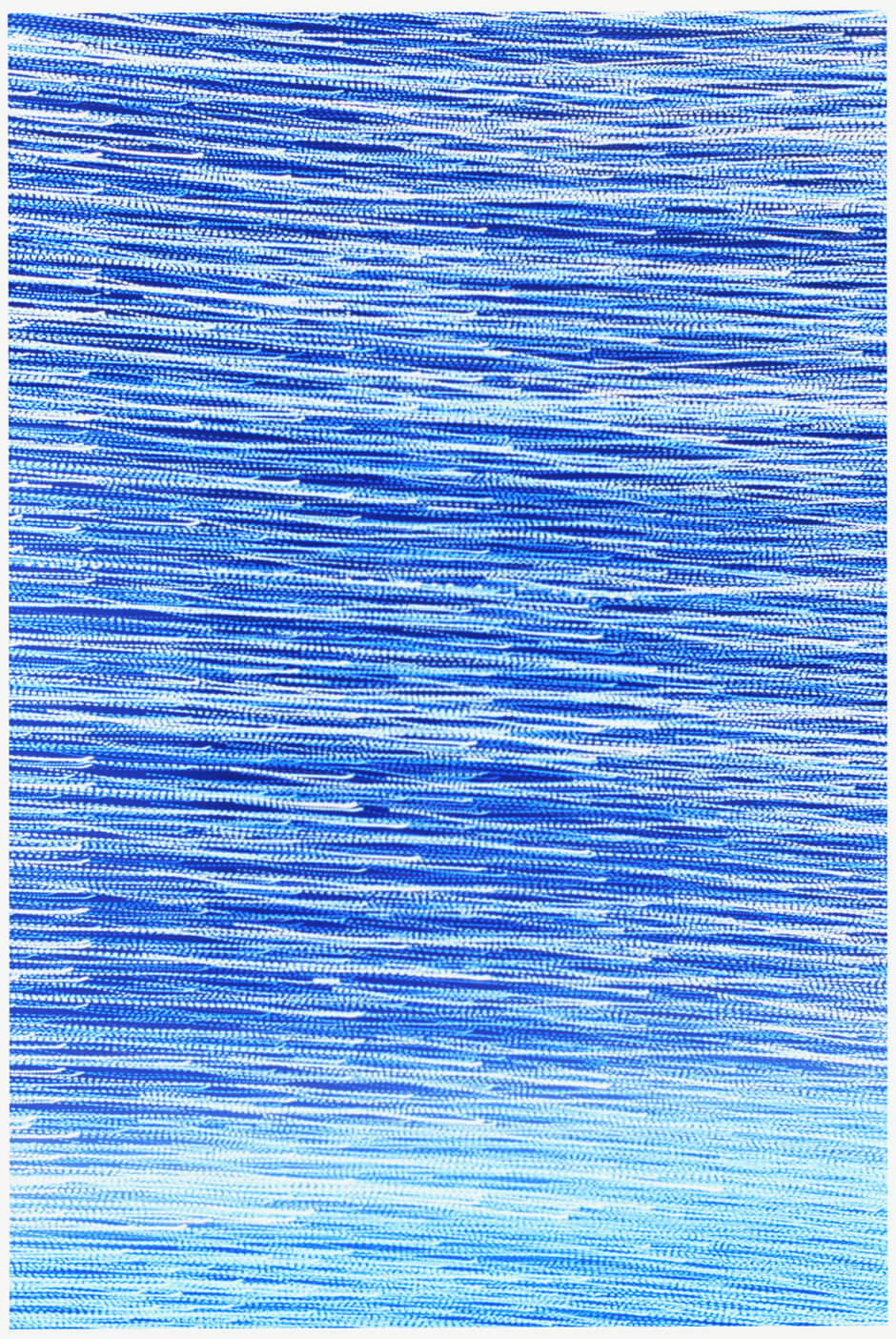
−パーソナルな作品とファッション写真を撮り下ろす上で何かを切り替えていたりするのでしょうか。
あるいは、変わらないものはありますか。
そんなに変わらない気がします。
ただ仕事の方はチームだなって、そこは圧倒的に違いますね。
何かを良いなと感じるポイントは同じ。
それがシャッターを押すという感覚なので。
例えば人の表情を撮影していても、いつも遠い目をした人に憧れる。
アンニュイ、虚まではいかないけれど…
あとは匿名性。
どこの誰か分からないような、自分の中では奥行きがあると思っているものをセレクトしている気がします。
−制作のプロセスで最も楽しいと感じる瞬間は。
あたりデータや、ベタ焼きを見た時。
「あ、こう撮れていたんだ。」というタイムラグがあるから面白いです。
想像できる余地があるというか。
「Interlude」に収めているのもすべてフィルム写真です。
仕事の時は、チームで1つのものを作り上げていく中でカチッとハマる瞬間。
それがすごく楽しいなと感じます。
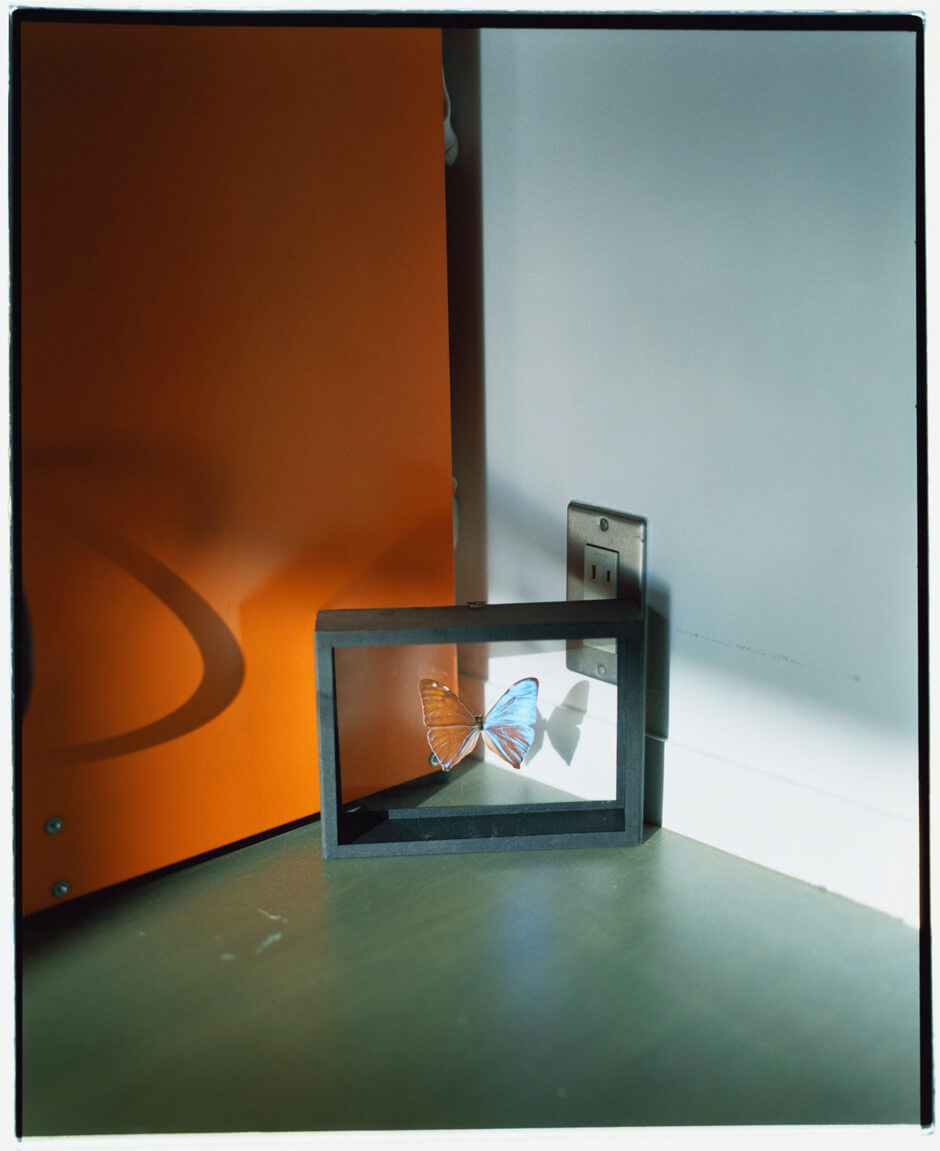
−好きなアーティストや、インスピレーションをもらえるクリエイターはいますか。
または、影響を受けた何らかの作品はありますか。
画家のGustav KlimtとEgon Schieleは、昔から好きでしたね。
絵が描けたら絵描きになりたかった。
あとは佐内正史さんの作品を初めて見た時はびっくりしました。
写真を撮り始める前は、写真集って同じものを撮ってそこでコンセプトを作らないといけないと思っていました。
たとえば建物だけとか、ヌードだけとか。
けれど佐内さんの写真を見たら全然何でもない灰皿を撮っていて、かっこいいと思った。
こういうやり方があるんだとびっくりして、それからWolfgang Tillmansとか色々な人を知っていって、だんだん広がった感じです。
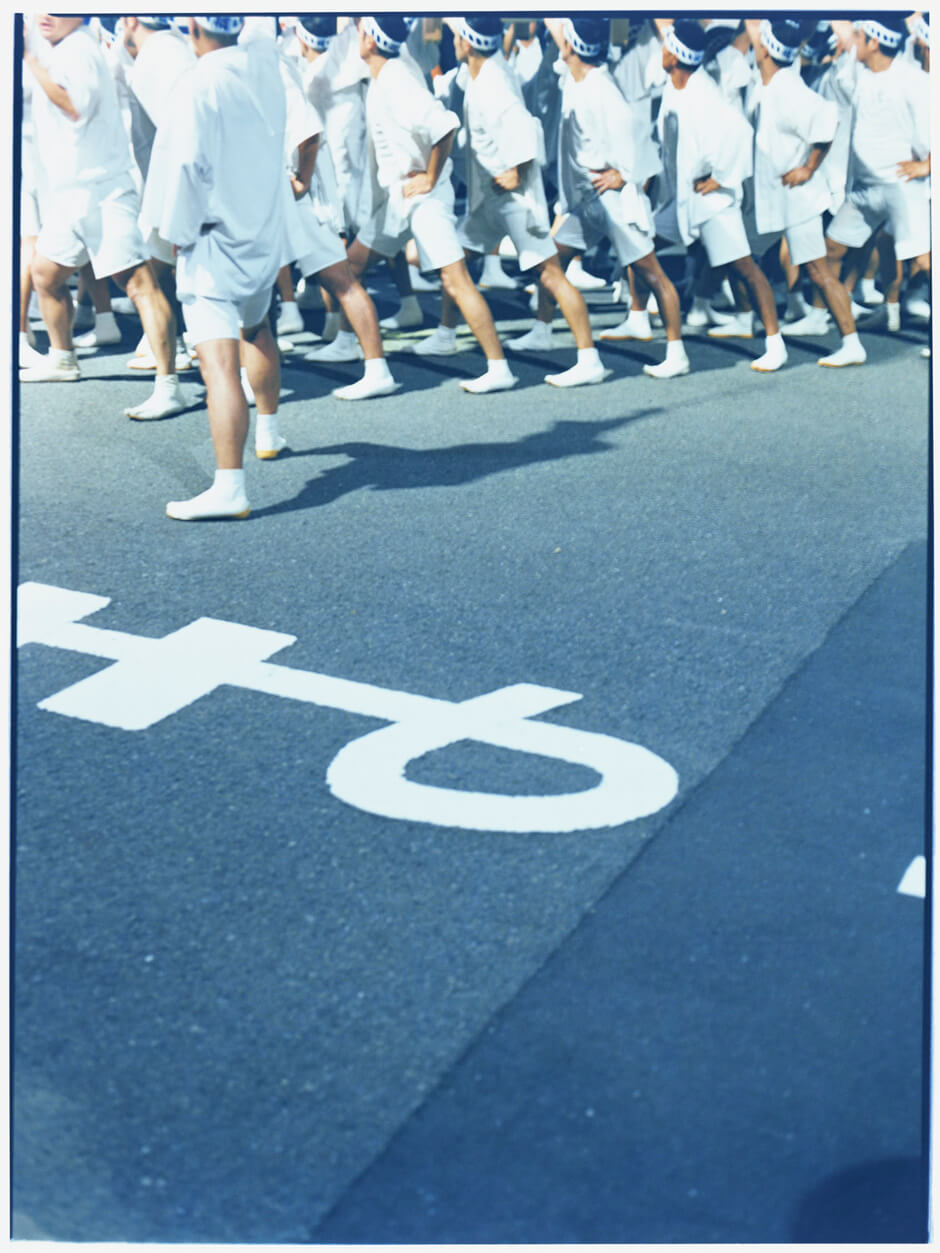
−日常の中で何かをインプットする時間を意識的に設けているのでしょうか。
日常では、極力関係のないものを見た方が良いのかなと思っています。
例えばファッション写真を撮っていて、海外誌とかを見てしまうと感覚が引っ張られてしまうので極力見ない方が良い。
関係のないところから影響を受けられるようにしておくというのは意識しています。
登山も時期によって山並みが変わるし、それと何が結びつくのかは分かりませんが。
身体を動かすことは年々大事だなと思うようになりました。
仕事のことはずっとどこかで考えているけど、それと関係のないところから影響を受けられる状態でありたい。
何かに興味を持ち続けたいと思っています。
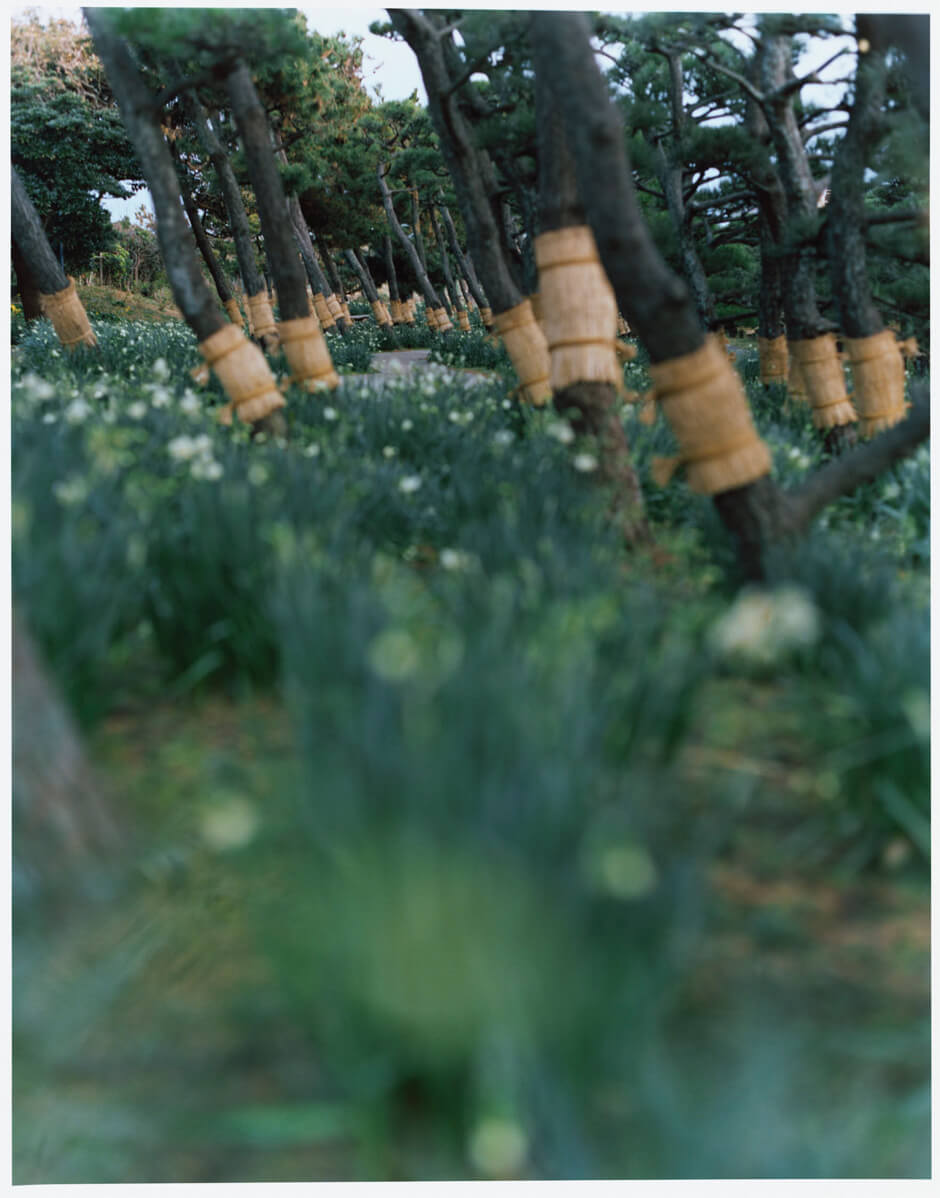
−今後どのような挑戦をしていきたいですか。
今まで個人的な作品をフィルムでしか撮っていなかったので、今度はデジタルで撮っていきたいです。
物質化するわけではない環境でやってみたいなと。
フィルムは撮ったらプリントするにもベタ焼きにするにも、ネガ自体が物質であって。
プリントアウトしない前提で写真を考えるということを改めてしたいです。
また、デジタルだからできることに興味があります。
「Interlude」は本当に感覚で写真に収めていた部分が多いです。
もっとレタッチの技術など、写真を加工するという前提で取り組んでみても面白いのかなと思いました。
そこの考え方も1つの在り方にとらわれなくても良いのかなと。
もちろん撮りたいと思うものは変わらないけど、フォーマットが異なると大きな変化がありそうで、可能性と魅力を感じています。
【“Interlude” by Yuki Kumagai Photo Exhibition】
DATE:6月5日(日)まで開催中
※水曜定休
TIME:12:00pm~7:00pm
PLACE:BOOK AND SONS
ADDRESS:東京都目黒区鷹番2-13-3 キャトル鷹番
ADMISSION FREE
Yuki Kumagai/熊谷勇樹:
1988年、静岡県生まれ。写真家。第6回写真「1_WALL」グランプリを受賞後、初の個展「そめむら」を開催した。写真家 横浪修への師事を経て2016年に独立し、以降はフリーランスとしてファッション誌や広告、アーティストのポートレートなど幅広い分野で活動中。奥行きのあるリリカルな写真表現は、静謐な空気の中に独特の迫力を感じさせる。
INSTAGRAM:www.instagram.com/yuuukikumagai
【Lula BOOKS “Interlude” by Yuki Kumagai】
RELEASE DATE : 2022年5月21日(土)
PRICE : ¥5,500(税込)
SPECIFICATION : ハードカバー / H250mm×W185mm / 104ページ
ISBN : 978-4-910889-01-6
PUBLISHER : SELEK LIMITED
AVAILABLE TO BUY FROM:
TOKYO
青山ブックセンター本店
銀座 蔦屋書店
ジュンク堂書店 池袋本店
代官山 蔦屋書店
なかなかの
二子玉川 蔦屋家電
本屋B&B
bonjour records 渋谷スクランブルスクエア店
BOOK AND SONS
shashasha
SHIBUYA TSUTAYA
NAGANO
軽井沢ニューアートミュージアム
KYOTO
ホホホ座 浄土寺店
OSAKA
梅田 蔦屋書店
BOOK OF DAYS
FUKUOKA
本屋青旗 Ao-Hata Bookstore
INTERNATIONAL
moom bookshop
treelikeswater
その他全国書店・CDショップ・オンライン書店など
ONLINE SHOP :
通常本
lulajapan.stores.jp/items/62665e0ae3bbd1587ed021dc
サイン本
※なくなり次第販売終了
lulajapan.stores.jp/items/627dba6ebc8f397e6a05bb7e
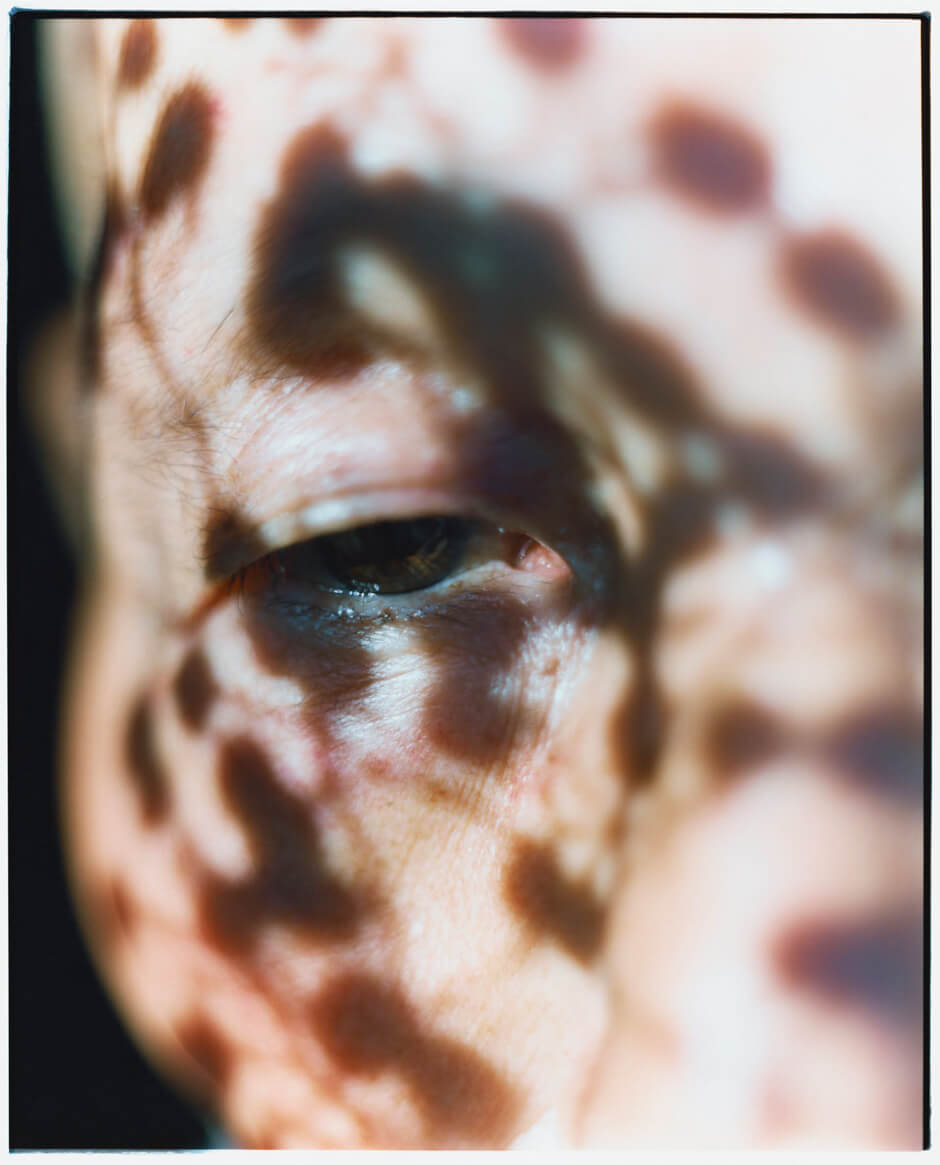
A photographer Yuki Kumagai’s photo book ‘Interlude’ is released from the publishing project “Lula BOOKS”.
A solo exhibition commemorating this release is being held at the bookstore and gallery “BOOK AND SONS” until June 5th (Sun).
This time, Lula Japan conducted a special interview with Kumagai.
Looking back on his journey as a photographer, he once again spoke about his inner thoughts.
We asked him about what he feels now, how he deals with photography, and his outlook for the future.
What made you start doing photography?
I was originally interested in photography. I wasn't in an environment where I could touch a camera, but I wanted to try it and that’s why I started.
I really liked the photographer Masafumi Sanai
I also found music and film interesting, but had no idea how I should interact with them.
Then I picked up a camera just because I was interested in expressing myself.
Did you have any concerns or hesitations about pursuing a career as a photographer?
I just tried so hard to live in my teens and twenties. I was nobody, unstable, and my senses were more acute.
In my thirties, I'm busier work-wise, but I feel like I can accept much more things now.
Things are hard when you are nobody.
For me, now it's easier with the job title of “Photographer”, but when I worked at a studio as an assistant, I couldn't even imagine that I could be a photographer or make a living at it.
I could say it was a moratorium, but the struggle of not having roots was very hard, now that I think about it. I was multi-sensory.
My mentor, Osamu Yokonami, had a very strong influence on me.
The two to three years I spent as his assistant were really significant.
He gave me the soil to become a member of society and to make a living as a photographer.
Thanks to him for making me feel like there is no need to back to the past.
Now that you have been independent for almost seven years, have your feelings or the way you photograph changed at all?
Conversely, is there anything that has remained the same throughout your career as a photographer?
I think there are good and bad times when techniques improve and you can capture the pictures very beautifully. There is a moment better when I first started, without thinking.
Sometimes I think it would have been better if I had taken pictures on initial impulse, because I start to think about it too much.
You will be capable of doing a lot of things by inertia, so I want to be careful about that as the years go by.
On the other hand, I think there are some things that can be seen by shooting and keep working on it.
I want to be faithful to photography all the way through.
I learnt a lot about how to face photography from Yokonami.
Do you switch anything for shooting between your personal work and fashion photography?
Or are there certain things that remain the same?
I don't think it's that different.
However, I feel that we are a team at work, and that is by far the biggest difference.
The point at which something feels nice is the same.
That is what makes me press the shutter.
For example, when I photograph people's expressions, I always admire people with distant eyes.
Ennui, not quite to the point of emptiness, although...
Then there's anonymity.
I feel like I select things that I think have depth to them, as if I don't know who or where they are.
What is the most enjoyable moment in the creative process?
When I look at the pertinent data and the solid prints.
It's interesting because there's a time lag where you think, "Oh, that's how it turned out.”
There is room for imagination.
All the photographs in ‘Interlude’ are also taken with films.
When I'm working, it's the moment when I get it right in the process of creating something as a team.
I find that really enjoyable.
Do you have a favourite artist or creator who inspires you?
Or is there some kind of work that has influenced you?
The painters Gustav Klimt and Egon Schiele have always been my favourites.
If I could draw, I wanted to be a painter.
I was also surprised when I first saw Masafumi Sanai's work.
I used to think that a photo book had to be made up of the same things and you had to create a concept before I started taking photographs.
For example, only buildings or nudes.
But when I saw Sanai's photographs, he was taking pictures of an ordinary ashtray, which I thought was cool.
I was surprised that there was such a way of doing it, and then I got to know Wolfgang Tillmans and a lot of other people, and it gradually expanded.
Do you consciously set aside time to input something from your daily life?
In everyday life, I think it is better to look at things that are as unrelated as possible.
For example, if you are taking fashion photos and you look at foreign magazines or something, your senses will be pulled in, so it is better not to look at them as much as possible.
I am conscious of the fact that I should be able to be influenced by unrelated sources.
Mountain climbing also changes mountain ranges at different times of the year, I’m not sure if it connects to anything though.
I've come to think that physical exercise is more important every year.
I'm always thinking about work somewhere in my head, but I want to be in a state where I can be influenced by something unrelated with.
I want to keep interested in something.
What challenges do you want to take on from now on?
I want to shoot my personal work digitally, since I have only worked with film.
I want to do it in an environment where it's not about materialising. With film, once you take a picture, the negative itself is material, whether you print it out or make a solid burn.
I want to rethink photography based on the premise of not printing out.
I am interested in what is possible with digital.
A lot of “Interlude" work was really done by sence.
I thought it would be interesting to work on the premise of editing photographs, such as more retouching techniques.
There is no need to be restricted to one way of thinking about it.
Of course, what I want to photograph remains the same, but it seems like there could be a big change if the format is different.
I feel the possibilities and the attraction.
SHARE
RELATED ARTICLES
LATEST TOPICS
PICK UP
-
- Fashion
- 09.Feb.2026
-
- Fashion
- 16.Feb.2026
-
- Fashion
- Art&Culture
- Beauty
- Encounter
- 07.Jan.2026
-
- Fashion
- 17.Feb.2026
-
- Art&Culture
- 20.Feb.2026
-
- Encounter
- 24.Feb.2026
-
- Beauty
- 19.Feb.2026
-
- Fashion
- 26.Jan.2026
-
- Beauty
- 09.Jan.2026
-
- Beauty
- 08.Jan.2026
-
- Fashion
- 19.Jan.2026
-
- Fashion
- 05.Jan.2026
-
- Encounter
- 18.Dec.2025
-
- Fashion
- 13.Nov.2025
-
- Fashion
- 03.Dec.2025
-
- Fashion
- Art&Culture
- Beauty
- Encounter
- 01.Oct.2025
-
- Fashion
- Art&Culture
- 04.Nov.2025
-
- Fashion
- 31.Oct.2025
-
- Fashion
- 08.Sep.2025
-
- Art&Culture
- 01.Aug.2025
-
- Fashion
- Art&Culture
- 13.Jun.2025
-
- Fashion
- Art&Culture
- 13.Jun.2025
-
- Fashion
- Art&Culture
- 04.Jun.2025
-
- Fashion
- Art&Culture
- Beauty
- Encounter
- 22.Apr.2025

